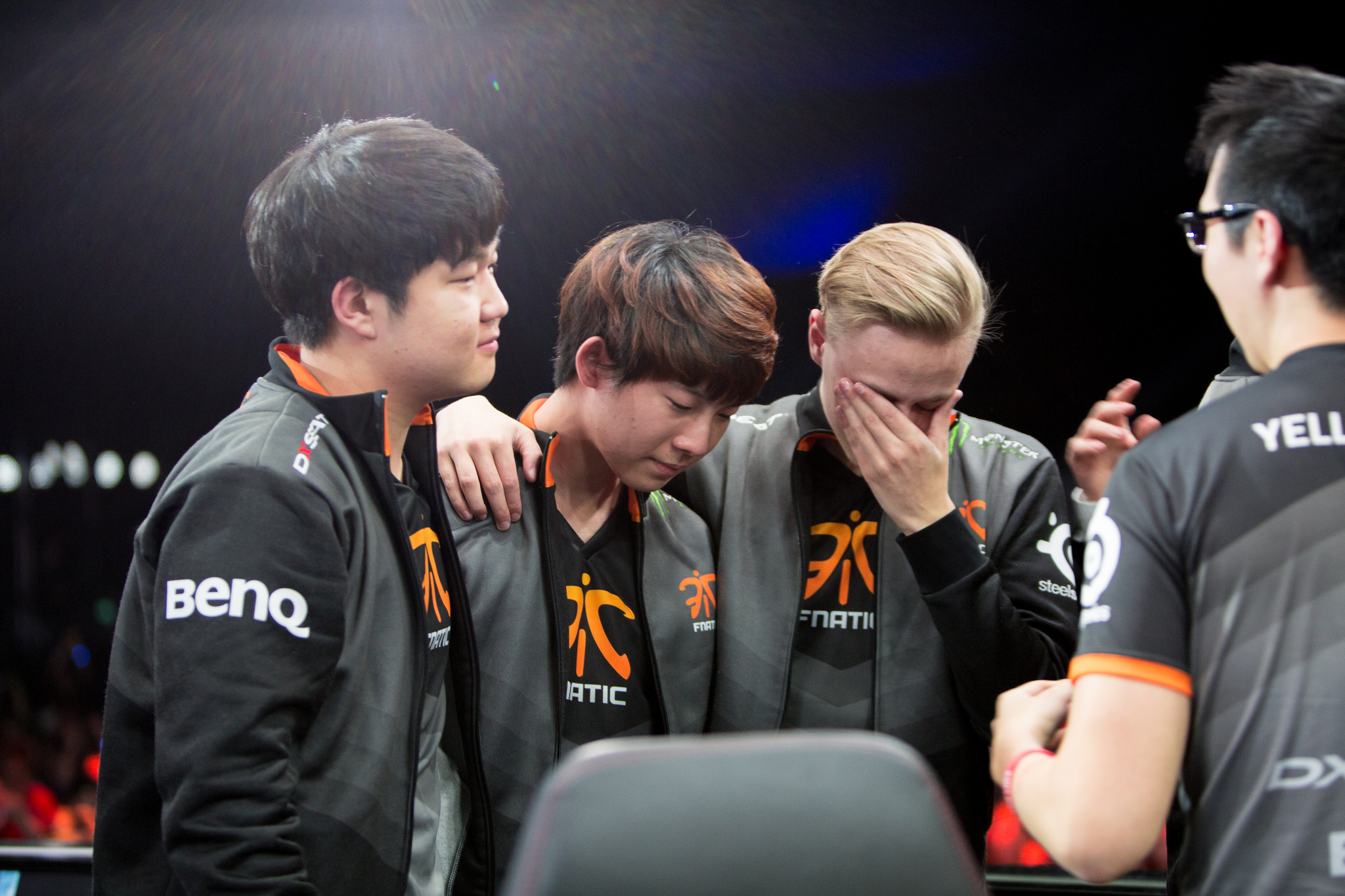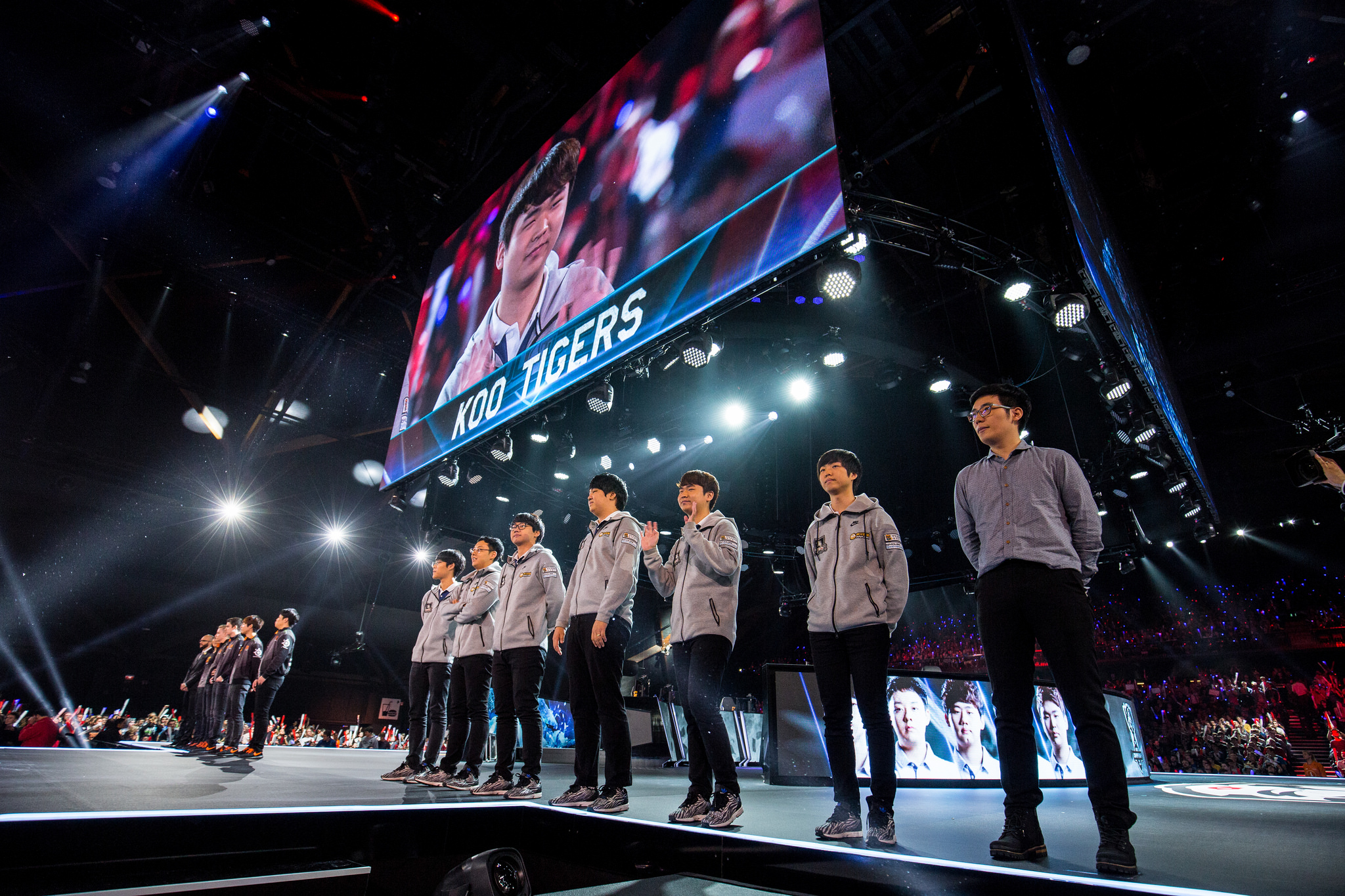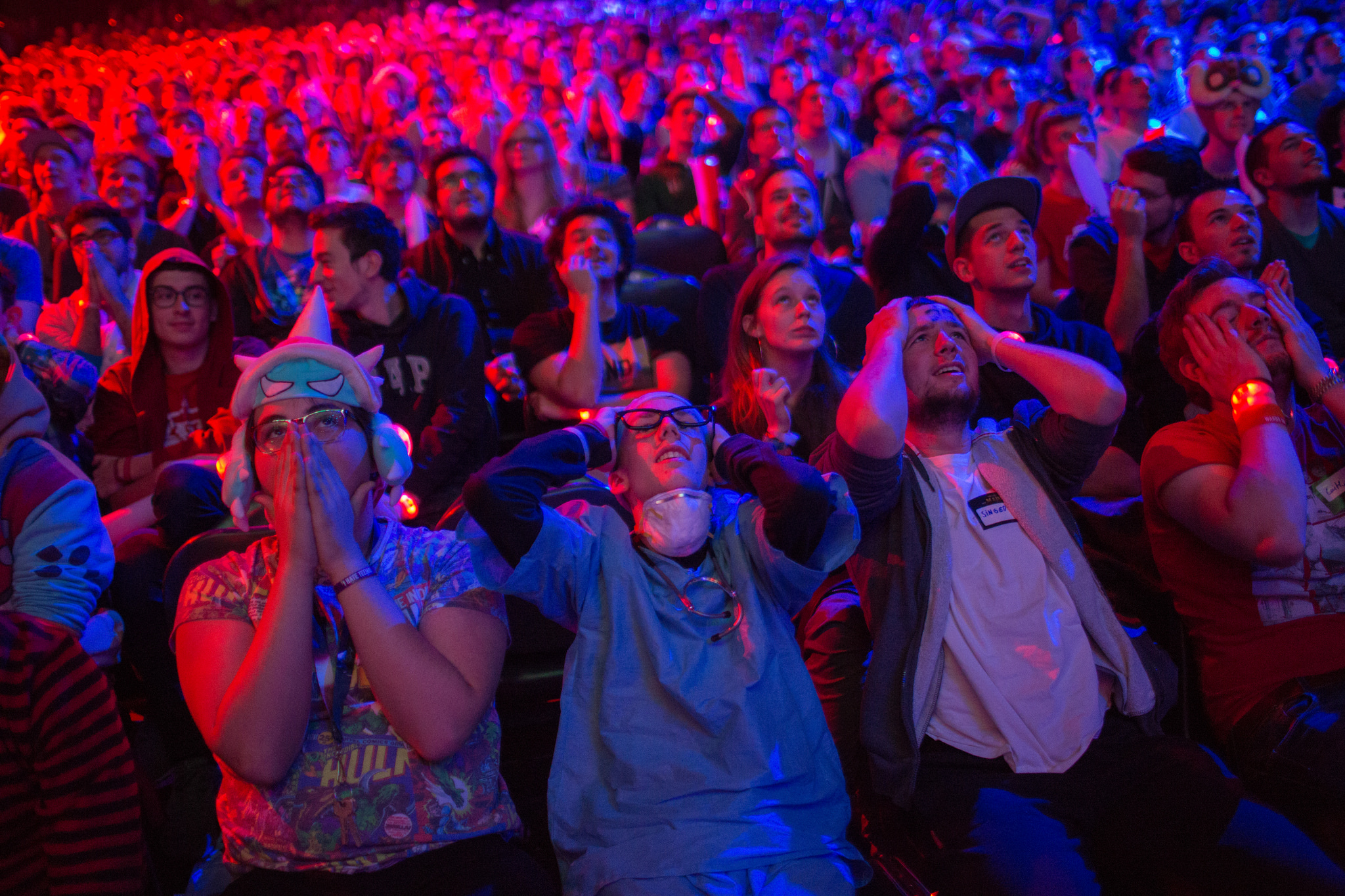Looking for a EUreka moment at LoL Worlds

Back-to-back 3-0s was not how the semifinals were supposed to go. Origen's loss to SKT T1 was expected, sure, as Korea's undisputed kings of League have long since proved to be untouchable. Where China's EDG and LGD turned in disappointing performances, and where the North American teams that dazzled so brilliantly in week one were already lost causes before the playoff brackets even started, SKT T1 defied the script of this year's Worlds narrative by playing like gods. Undefeated in the group stage, untouched by Taiwan's AHQ in the quarterfinals—it was considered an accomplishment for Origen to force games close enough that SKT would lose an inner turret, much less come within visual range of the enemy base.
But Fnatic was supposed to do better. Even Christopher "MonteCristo" Mykles, of Korea's OGN English broadcast, was expecting them to take at least one game off of the KOO Tigers—and the rest of the analyst's desk was expecting the European hopefuls to win outright. After all, a near-perfect season and brilliant displays of daring had made the current Fnatic squad world-famous for a reason, and they seemed intent on cementing a reputation as the best squad to ever come out of the western hemisphere.
Things looked promising in game one. A fast start and early lead, particularly Huni's explosive rushdowns against a helpless PraY, set a favorable tempo for the team. At one point, they were packing a solid 7,000 gold lead over the Koreans, with Febiven punishing them at every turn. The rookie European midlaner was ripping through health bars like a raptor through a nestful of kittens, chewing up their front line in a matter of seconds. Though rival Kuro was able to mitigate Fnatic's growing lead with a few assassinations himself, the steady progression of lost turrets forced the Tigers farther and farther back into their caves.
Then Smeb woke up and everything dropped off a cliff—almost literally. Riot's LoLesports site helpfully provides a stats page for all the games played, and the point where Fnatic lost is made self-evident by the gold graph. At 30 minutes an abortive fight turned into a triple kill for the Tigers' top lane ace. At 41 minutes, Kuro's late-game Kassadin lobbed off four heads and, with them, all hopes for a Western finals.
The rest of the set was controversial. Questionable picks and a visibly rattled Fnatic made easy prey for the Tigers. Head coach Deilor is now under fire for the decisions that were made, an anguished European community is threatening to boycott a "boring" all-Korean finals (as if any game with Faker, MaRin and Smeb in it can be boring), there's teeth gnashing, hair-pulling, self-pitying wailing... the usual circus when fandom meets disappointment. Which is ridiculous, because even these disastrous results speak of great promise in the next season.

Reality check
First, yes: as it turns out, there's still a gargantuan chasm between what the Korean circuit is capable of and what the rest of the world can do. It was expected that China would be the better region in the first half of 2015—as evidenced by Edward Gaming's victory over SKT T1 back at Tallahassee, Florida during the Mid-Season Invitational. It was also expected that Korea would make up that difference and exceed it by October—as evidenced by, well, the current status quo. Despite losing over 80 top and mid-level players to teams and regions across the globe, along with coaches and analysts, the underlying infrastructure that made those talents possible in the first place was still chugging along just fine. KeSPA was still an organized officiating body, former Brood War players were still in coaching and consultative positions, and their formal recruitment system still made for heavily incentivized solo queue play. They had none of the fundamental communicative and cultural issues found in the Chinese circuit, and the west had no comparable infrastructure.
In fact, this was the first year that any serious effort was taken by the western scene at all to have a similarly authoritative and integrated coaching and analysis structure to support their players. Lost in the devastation following Europe's 0-6 semifinals week is a sense of just how successful it's already been in such a short amount of time. In Origen’s case, they underwent a hard career reset through the EU Challenger Series and defied their own expectations by managing to make it to Worlds. Finishing among the top four is a huge bonus. In Fnatic's case, Deilor's guidance had them stomp through the entirety of the European scene undefeated and trounce China's top team Edward Gaming in a breathtakingly clean 3-0.
The biggest gaming news, reviews and hardware deals
Keep up to date with the most important stories and the best deals, as picked by the PC Gamer team.
European fans are quick to forget that their best teams and players didn't even make it out of group stages last year. That, last year, Alliance was responsible for the "Kabum!" meme, losing to a wildcard team with their standings still on the line. It doesn't matter in the slightest that they got collectively 0-6'd by Korea in the semifinals. For them to go from a bottom-two region to inarguably second-strongest in just one year means that they're on the right course.

Catching up
There are still lessons to be learned from that embarrassing region-wide 0-6. Both European teams clearly had a tilt problem after losing game one—neither of their support crews seemed to have developed contingency plans for them, whereas KOO Tigers infamously play better from behind. Their pick-ban phases also weaken as time goes by—an artifact, in my estimate, of the LCS's best-of-one system compared to Korea and China's regular season multi-game sets. Due to the LCS's structure, western coaches simply don't have the opportunity to practice on-the-fly draft tactics and adjustments outside of playoffs, presenting a clear and exploitable weakness during international events. They also don't play nearly as many games as their Eastern counterparts, so western players lack the mental stamina and sustained focus of eastern players.
None of these are insurmountable obstacles—but they do require cooperative willingness from the drama-prone western teams. It should be remembered that the KOO Tigers are not like SKT or KT Rolster. Though they're affiliated with KeSPA now, they started as a wholly indie team comprised of former NaJin rejects. They’re even without actual sponsorship, as KOO TV announced fiscal issues just last month, making this top two placement fortunate for all five players. Yet here they are trailing just behind God's Own Team, reaping a glory only known to plucky underdogs made good.
Even if Riot makes the lamentable error of maintaining best-of-one regular season sets, there's no reason why European and North American teams should handicap themselves accordingly. They know how many games China and Korea plays, and what their structures are like. There's nothing stopping them from playing the same number of games, under a similar system, on top of their LCS games. There's nothing stopping them from using their Challenger teams as in-house talent farms, relentlessly practicing specific team compositions and strategies until they've worked out every kink and mapped out every contingency.
There's nothing, in fact, stopping them from courting NoFe and KeSPA representatives in the off-season for consultation services, cheating their way around the experience gap among their managers and coaches. It's just a matter of whether or not they have the will to do so. Given how magnificently Europe recovered from their total defeat in 2014, I don't think the story ends here.

PC Gamer Pro is dedicated to esports and competitive gaming. Check back every day for exciting, fun and informative articles about League of Legends, Dota 2, Hearthstone, CS:GO and more. GL HF!

